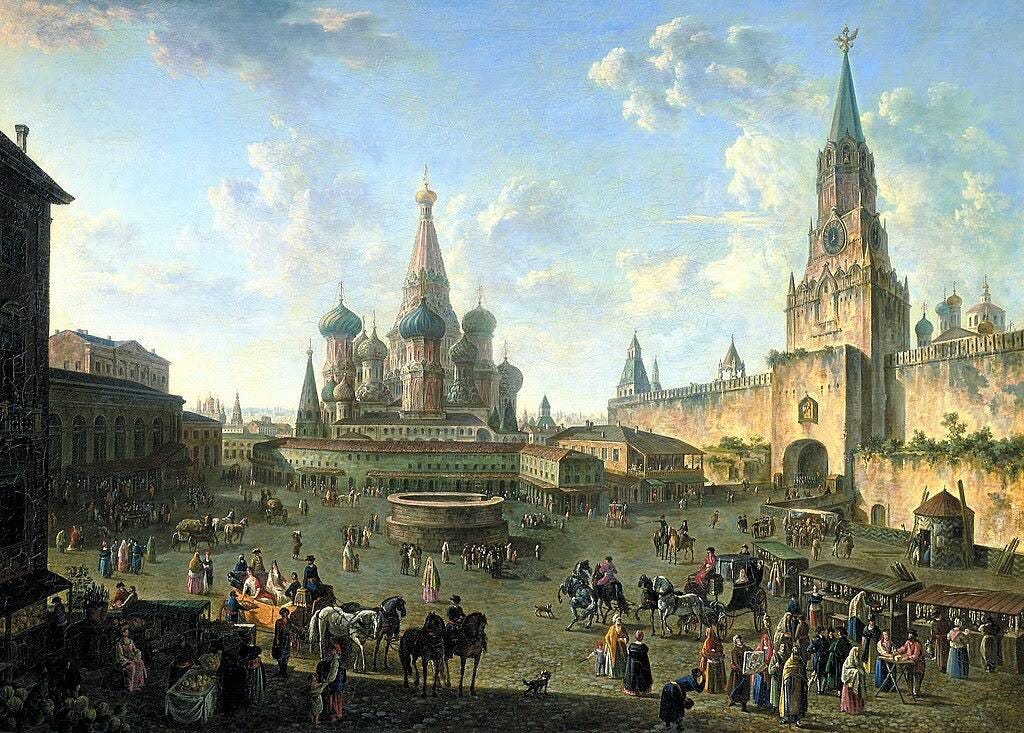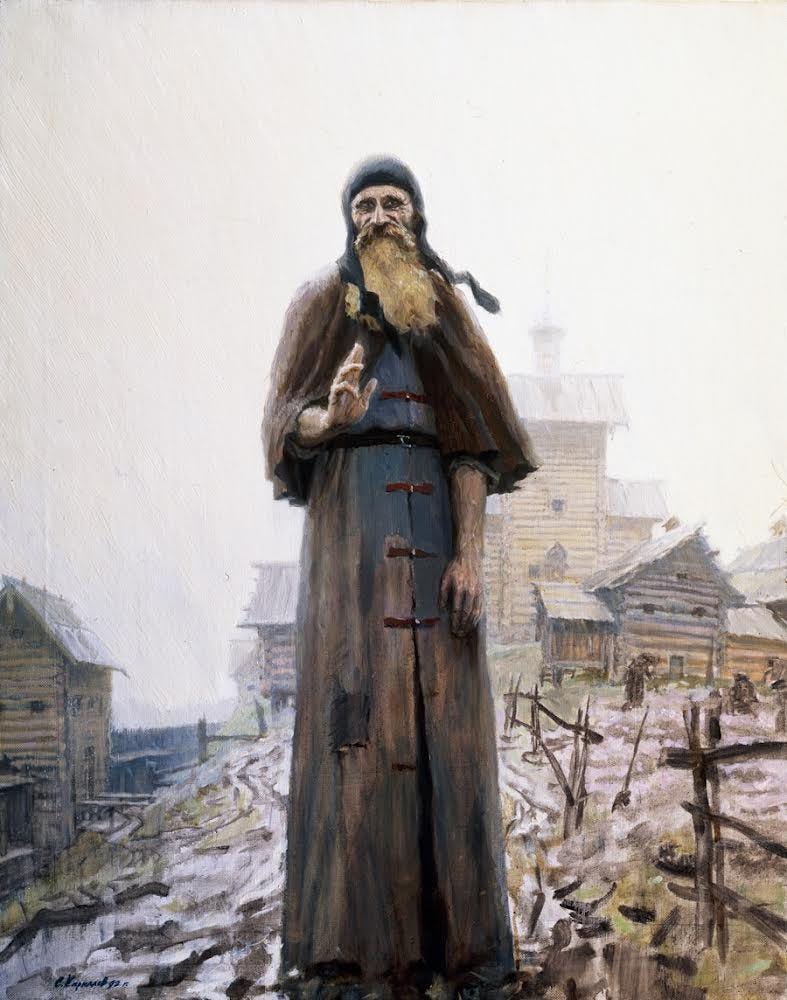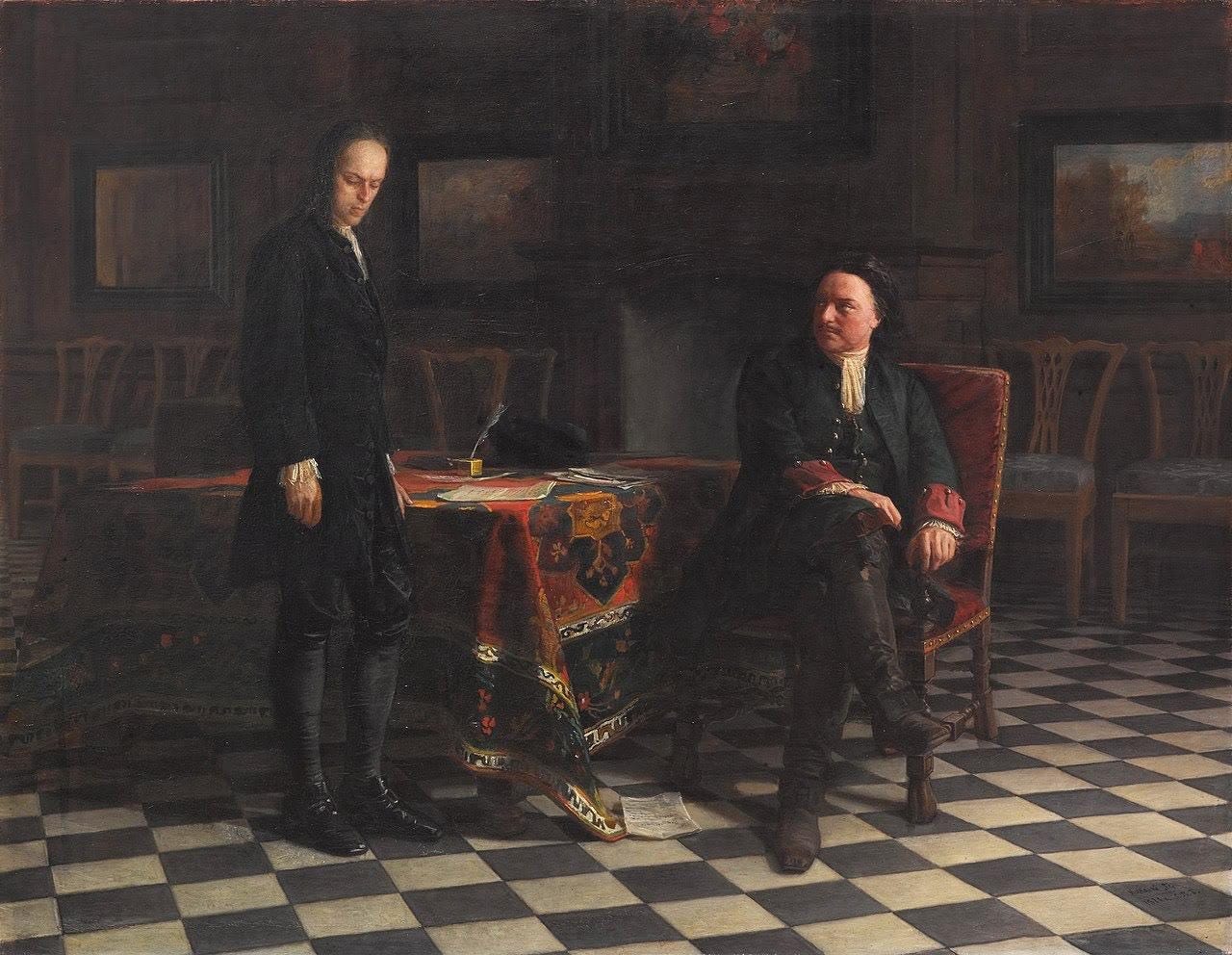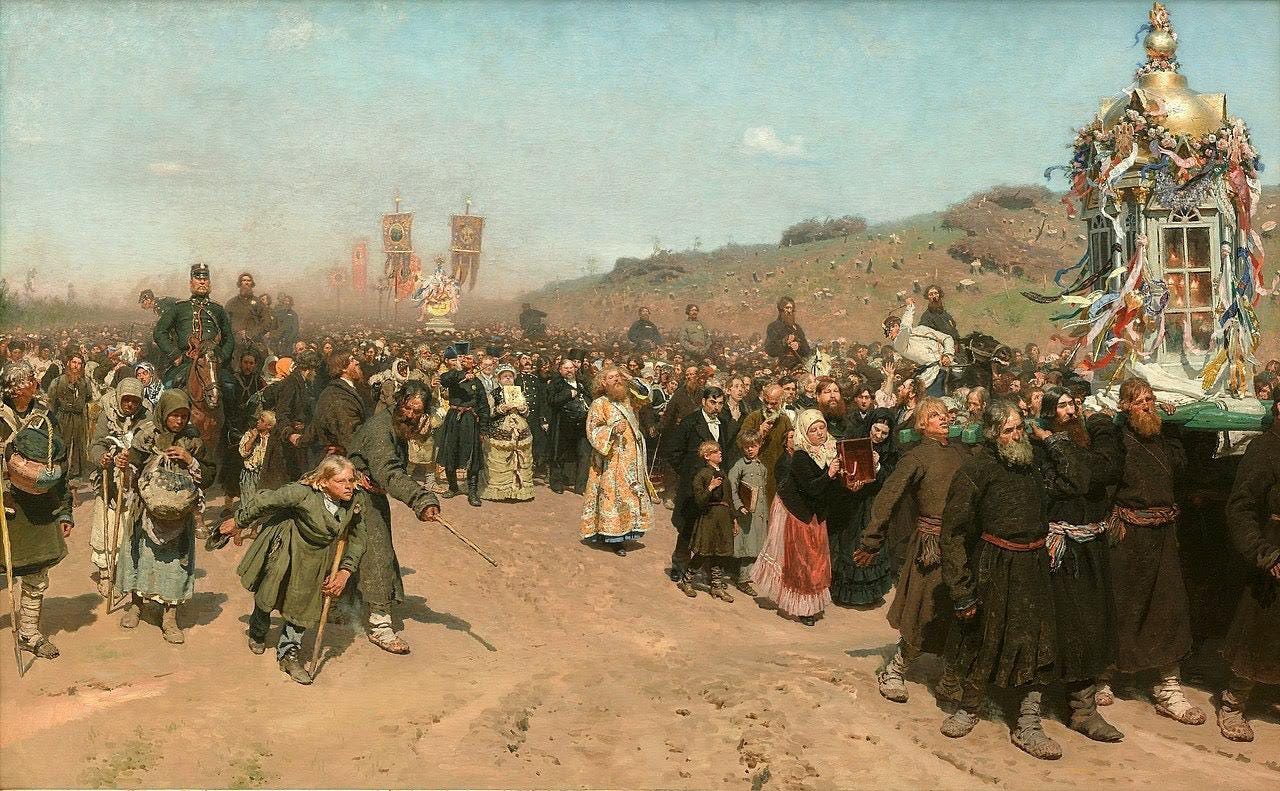The Tragic Homogenization of Russia
The disturbing mindlessness of anti-Russian sentiment
“All happy families are alike; each unhappy family is unhappy in its own way”
Anna Karenina’s famous opening line speaks with raw, simple, and shocking insight. First released in installments between 1875 and 1877, Tolstoy’s masterpiece belongs to the golden age of European high culture. The great Russian novelists—alongside the symphonists, painters, and public men—are exemplars of the 19th and 20th centuries’ greatest cultural triumphs.
In the 21st century, a stupified (or shall we say, “stupid-fied”) world might twist Tolstoy’s immortal phrase into a more accurate reflection of contemporary public opinion: “all good countries are alike; each bad country is bad in its own way.”
So stands the sorry state of public discourse surrounding the world’s largest country by landmass, and Europe’s largest population mass (at 144 million people, Russia has more citizens than Britain and France combined).

The locus of Russia’s contemporary denigration can no doubt be found in the need for war to be executed in terms the public can swallow. Ukraine is the good guy here, and war—especially war waged in a post-gentlemanly age—demands the total buy-in of public opinion to the good guys’ mission. Even the First World War, a confused and gruesome conflict without an obvious “Great Satan” was framed to posterity in binary terms, yet any historian worth his salt could quickly point to a morass of cross-purposes emerging from the fog of war.
Regardless, something about the sheer mindlessness of the present anti-Russian sentiment that permeates the West is deeply disturbing. Aghast opposition to Putin is one thing, but the rabid pile-on, the eager homogenisation of Russia in the public imagination into one singular, ghoulish entity, severely discredits the West’s community of nations. This war has brought the Russian people bitter suffering, and indeed, they have suffered bitterly—and innocently—through over a century of failed leadership.
Poverty, terror, and suffering have been the motifs of everyday Russian life since the end of the 19th century. The 20th century began with terrible losses in the 1904-1905 Russo-Japanese war, which precipitated the Revolution of 1905. And when combined with the shocking personnel losses Russia suffered in the First World War, this stoked the febrile atmosphere which bred the October Revolution and the Russian Civil War. The Bolsheviks and the opposing White movements perpetrated the Red and White Terrors. Famine killed five million in 1921-1922, and another eight million in 1932-1933. Then there was the Second World War’s horrors: the Nazis captured and starved to death over three million Russians, and countless more were slaughtered in the most vicious fighting the world had ever known, at the siege of Stalingrad. For nearly a quarter-century, Joseph Stalin ruled over the chaos, while disappearing enemies—and friends—in the middle of the night. Losing the Cold War meant that the Russian people bore the weight of their leaders’ intergenerational failure. After Mr. Gorbachev tore down that wall, the oligarchs enriched themselves, while the peasants remained entrapped in economic ruin, their chances for self-improvement sunk by the inky-dark sludge of all-pervasive corruption.

Anti-Russian absolutism, the kind that willfully ignores the Russian people’s suffering, started in the United States. Quite rightly, American propagandists had sought a devastating and complete takedown of the communist menace. The enemy had to be Russia totalis, in order to rouse the American people to a requisite level of vigilance against communism. In the post-Cold War era, this monolithic view of Russian national character never shifted. Views diverge as to why this ossification became so profound, but we can be sure that the West itself bears some of the burden.
In June, Russian-American journalist Keith Gessen wrote in the New Yorker that when the Cold War concluded, both then-President George H.W. Bush, and Secretary of State James A. Baker appeared disinterested in addressing the profound problems associated with re-integrating Russia into the western hemisphere. Neither man was up to the task of negotiating a best-case-scenario exit from the impasse of Soviet politics. As Gessen describes:
Gorbachev thought he was discussing the creation of a new world, in which the Soviet Union and the United States worked together, two old foes reconciled. Bush thought he was merely negotiating the terms for the Soviets’ surrender.
In the power centers of the old world, before America rose to international pre-eminence, the European royal families and their appendaged aristocracies were too closely interrelated to view each other in the absolute terms western elites are fond of today. The complex ethnic history of Central and Eastern Europe also prevented such black and white readings of the Russian national character. This also explains, in part, why the moral reasoning behind wars of aggression on the European continent are far more opaque than the Anglosphere’s journalists have the capacity or inclination to comprehend.

This lack of comprehension, allied to the ever-living remnants of Cold-War era American anti-sovietism, have produced crude, unsophisticated reporting on the Russia that fights Ukraine today. This circumstance, in turn, has fed a crude and unsophisticated anti-Russian public imagination. The consequence has been the Russian people’s denigration and the broad refusal to see Vladmir Putin for what he is: not a representative of a world-historic people, but the latest in a long line of usurpers running back to his namesake, Vladimir Lenin.
This has not been healthy for the West. Anti-Russian mania has prevented us from honestly appraisingthe more worrisome aspects of Ukrainian President Volodymyr Zelensky’s leadership. It has concealed Zelensky’s unprecedented crackdowns on Orthodox Christians and allowed his growing connections to billionaire oligarch backers to go largely unreported. It has shielded Ukraine from serious examination of its corruption crisis, and given cover to a western military-industrial complex hell-bent on getting its money’s worth from arms sales to feed the conflict. The binary framing of not just the conflict itself, but the moral character of each participant nation, has also prevented the progression of meaningful dialogue towards a peace which would stop the slaughter of innocents on both sides. Instead, an absolutist rhetoric remains in the ascendancy. South Carolina Senator Lindsay Graham typifies this disposition. For Graham, Russia is unconditionally evil, and Ukraine unconditionally good. Anything less than total humiliation for Russia is unacceptable.
Walter Russell Mead, in God and Gold: Britain, America, and the Making of the Modern World, illustrates how since the dawn of modernity, the Anglosphere has desired, or more accurately, required, a “Great Satan” in order to give its foreign policy focus. Vladimir Putin has emerged as such a character after the subsiding of the Iraq War, and the messy conclusion of the Afghanistan conflict.

But there’s a problem: with Putin, the man, has melded into Russia, the country, in the Western imagination. Too few are able to see the distinction between Putin—the usurper—and Russia, the country he usurps. It is true that internally, Putin has been a sometimes-popular leader. He has attempted to revitalize the Russian Orthodox Church, and has shown more than a passing interest in connecting Russia with its fading high culture. But his guiding star has been the perpetuation of a Soviet governing ethos, not of a Russian traditionalism intent on rejoining the community of nations. He has revitalized the Soviet practice of state-sponsored assasination, and reconstructed the bloc-like mentality that pervaded the old empire. So long as Putin is Russia personified, the country can’t revive itself in its own pre-Revolutionary image. Putin usurps the spirit of the Russian people by tightening his grip upon their freedom of speech, stifling their economic freedom along the way, in his quest to support an oligarchy that allows his permits the continuation of his dictatorial rule to continue.
We are left with the tragedy: a nation that contributed spectacularly to the West’s cultural inheritance is being humiliated before the eyes of the world. Its institutions are denigrated on television and its citizens are slaughtered in trenches. Sometimes, the citizens are slaughtered on television, too.
Last month, a young Russian man living in Egypt was killed in a shark attack while swimming in the Red Sea. In a horrifying video posted to social media, the swimmer is visibly mauled and can be heard calling out in Russian for his father, understood to be closeby at the time. More horrifying than the video itself are the replies posted to the video. Hundreds of commenters express delight at the tragedy. For the world subjected to the binary messaging of mass media, even a man so clearly not in any way joined to the evils perpetrated by his former country’s leader, must be condemned as deserving of the deepest suffering for the sin of sharing a nationality.

The Russian people gave us Tolstoy and Dostoyevsky, Shostakovich and Stravinsky, Repin and Kandinsky. They fostered the Bolshoi and the Ballet Russes. They protected the Orthodox church in its mystic beauty and sacredness, and pushed the United States every step of the way in technological innovation throughout the 20th century. And yet, the Russian people have never seen just rewards for their civilizational genius. Few batted an eyelid earlier this year when Ron DeSantis, governor of Florida, described Russia as “A gas station with nukes.” DeSantis was repeating a throwaway line used on the U.S. Senate floor by the late Senator John McCain. These men—both running for president—ought to have thought more carefully about the outcome of their messaging.
Russia is perpetually wounded, and this has opened the door to it being used as a political cudgel. Perhaps the strongest attachment the American public has to the idea of Russia is—thanks to the mainstream media and the Washington establishment— wholly negative. In its pursuit of the 45th president, the commentariat used Russia as a hapless patsy, setting up the narrative that tied Trump’s election to the nefarious play of Russian security services. That the entire fiasco was a dishonest ploy orchestrated by Hillary Clinton and her campaign no longer seems to matter: a Harvard CAPS-Harris poll in May showed that 44% of voters still believe the now thoroughly-debunked “Russiagate” hoax to be true.
Through communism’s horrors, the Russians lost three generations of their own people. War took perhaps three generations more, and stands poised to take yet another, as the crisis of 21st century Eastern Europe rolls on.
We ought to do better, in the West, to disentangle justified prejudices against Putin’s imperialism from the hard-earned dignity of the long-suffering Russian people en masse.


